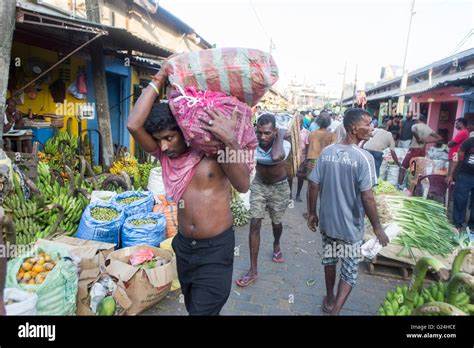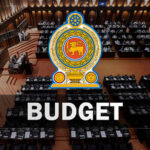
Wide Angle Focuses on Balancing Economic Stability and Public Expectations
- CNL Reporter
- February 16, 2025
- Weekly Political Review
- Weekly Political review
- 0 Comments
Weekly Political review
President to present NPP Regimes First Budget amid Mounting Challenges
By Rohana Jith
Despite holding an overwhelming two-thirds parliamentary majority and having governed for over two months, the administration of President Anura Kumara Dissanayake has struggled to make significant progress on its electoral pledges and emerging national concerns. As he prepares to present his first budget, the stakes are high—this fiscal plan could either reinforce public support or further fuel dissatisfaction.
The challenge for the President is twofold: complying with International Monetary Fund (IMF) directives for economic recovery while simultaneously addressing the expectations of the people. Optimism is growing among government members that the budget will include meaningful benefits and relief measures, though the specifics remain uncertain.
Unfulfilled Election Promises and Reviving Corruption Investigations
One of the government’s major promises—to combat large-scale bribery and corruption—remains largely unfulfilled, with delays in legal proceedings cited as the primary reason. While older investigations, such as those involving members of the Rajapaksa family, continue at a slow pace, no new cases have been publicized despite extensive inquiries.
To address this lag, the government has initiated structural changes within law enforcement. The Financial Crimes Investigation Division (FCID), previously disbanded amid corruption allegations, has been reinstated under the leadership of Acting Deputy Inspector General Pavithra Dayaratne. With his experience in financial crime investigations, authorities hope this revitalized division will accelerate anti-corruption efforts.
Economic Hardships and Supply Chain Disruptions
The country is grappling with soaring prices of essential goods, including popular rice varieties like Nadu and red Kekulu, while coconut prices have surged past Rs 225. These inflationary pressures, coupled with a nationwide blackout last Sunday, have intensified public frustration.
The Ceylon Electricity Board (CEB) has come under scrutiny for its inability to prevent the power crisis. Energy Minister Kumara Jayakody initially blamed the blackout on a monkey that had allegedly triggered a transformer failure.
This explanation was widely ridiculed, and the minister later shifted blame to the previous administration’s mismanagement of the power sector. Opposition leaders, including former Power and Energy Minister Patali Champika Ranawaka, dismissed the claim as absurd, arguing that systemic issues within the CEB were to blame for the outage.
Foreign Investments and the Adani Withdrawal
In a bid to attract Foreign Direct Investment (FDI), President Dissanayake embarked on a three-day visit to the United Arab Emirates (UAE), participating in the World Government Summit and engaging corporate leaders. However, his return to Sri Lanka was met with a significant setback—Adani Green Energy Ltd. (IGE) announced its withdrawal from a $1 billion wind energy project in Mannar.
The Indian conglomerate, facing legal challenges in the United States over alleged bribery, denied any wrongdoing but opted to exit the Sri Lankan venture. This withdrawal is a major blow to the government’s efforts to boost FDI, raising concerns about the viability of future investment projects. Discussions between Sri Lankan officials and Adani executives are set to continue, but the uncertainty surrounding the project has already cast a shadow over investor confidence.
Power Crisis and Governance Challenges
The recent nationwide blackout highlighted deeper problems in the country’s energy sector. While the CEB attributed the crisis to an overloaded system, critics argue that mismanagement and lack of infrastructure development were key factors.
Ranawaka pointed out that Sri Lanka’s power grid has a systems control mechanism in place since 2015, which should have prevented such an incident. He also raised concerns about the government’s handling of solar power initiatives, claiming that a proposed reduction in unit fees paid to solar energy producers could discourage renewable energy investment.
Establishing an Independent Prosecutor’s Office
In response to ongoing concerns about legal delays, the Ministry of Justice and National Integration has announced plans to establish an Independent Prosecutor’s Office, in line with the manifesto of the National People’s Power (NPP). An expert committee will be formed to develop the framework, with input from the public and civil society organizations.
However, this initiative is expected to be a time-consuming process, as the committee will need to define the office’s structure before obtaining cabinet approval. Legal experts suggest that if the new body operates parallel to the Attorney General’s Department, constitutional amendments may be required.
Political Maneuvering and Opposition Criticism
Opposition parties continue to criticize the government’s approach to governance. Chief Opposition Whip Gayantha Karunatillake highlighted an ongoing campaign to increase opposition representation in parliamentary committees. While President Dissanayake initially showed willingness to consider the request, House Leader Bimal Ratnayake resisted the move, leading to further debate in Parliament.
Meanwhile, former President Mahinda Rajapaksa’s security personnel at Wijerama Mawatha have reportedly had their water supply cut off due to unpaid bills. A spokesperson for the Rajapaksa family accused the government of targeting the former president through administrative measures.
Delays in Local Government Elections
Hopes for conducting local government elections in April have diminished, as constitutional amendments are required to proceed with the process. Speaker Jagath Wickremeratne recently announced that the Supreme Court has ruled certain clauses of the proposed Local Authorities Elections Bill as unconstitutional, necessitating revisions before passage.
The Road Ahead for President Dissanayake
At the World Government Summit, President Dissanayake emphasized the importance of governance efficiency and accountability. He urged a shift from individual efforts to collective action, underscoring the need for structural reforms within state institutions. However, back home, his administration faces mounting crises that require urgent attention.
The combination of economic hardships, public discontent, and governance challenges presents a formidable test for the new government. Whether President Dissanayake can steer the nation toward stability and prosperity remains to be seen. As he delivers his first budget, the nation watches closely, hoping for decisive action that will alleviate the burdens faced by the people

